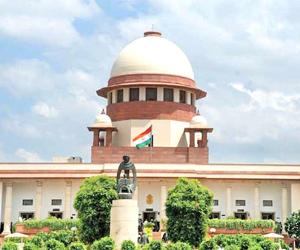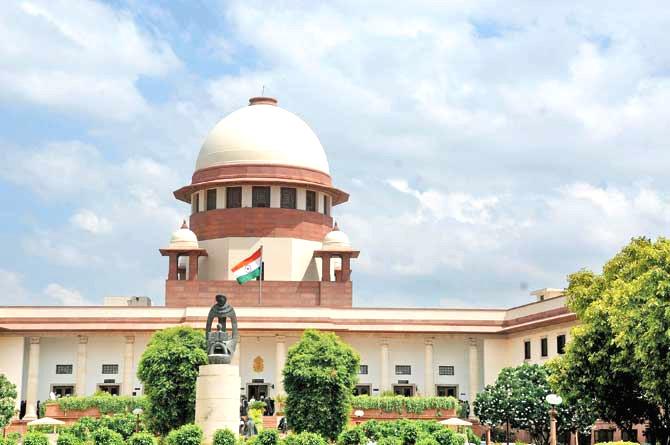The PETA said that it would release the findings of its investigation into the recent nine Jallikattu events and submit the same in the Supreme Court

 Supreme Court
Supreme Court
ADVERTISEMENT
The PETA on Tuesday said that it would release the findings of its investigation into the recent nine Jallikattu events and submit the same in the Supreme Court. The animal rights body claimed that the findings proved there was cruelty towards bulls and disregard for human life.
"PETA India documented the cruelty ¿ which was observed during events in four districts of the state (Tamil Nadu) between January 14 and 28, 2018, in detail in a report and in photographs and video footage," it said in a statement.
The video shows that bulls were "hit, whipped and poked" with metal and wooden sticks inside the 'vaadi vaasal', and their tails were "twisted and yanked" to force them to run towards the "menacing" crowd, PETA said.
It also shows that bulls' nose ropes were roughly yanked, causing their nostrils to bleed while they fled onto village streets, injuring spectators and even mauling them to death, the organisation claimed. PETA said that onlookers hit and jumped onto bulls fleeing the collection yard -- an illegal practice known as "parallel Jallikattu"-- and the bulls suffered severe injuries and collapsed.
It also said that it plans to submit these findings in the Supreme Court in support of its ongoing case challenging the constitutional validity of the Prevention of Cruelty to Animals (Tamil Nadu Amendment) Act, 2017, which permits Jallikattu in the state.
"Year after year, investigation after investigation reveals the same thing: deliberate cruelty, injury, and deaths are inherent in Jallikattu, and no amount of regulation can change that, which is why the Supreme Court had banned it in the first place. "India's true culture is one of kindness to cattle and respect for life ¿ not forming a violent mob to bully terrified animals," said PETA India CEO Dr Manilal Valliyate.
PETA India said that since Tamil Nadu began allowing Jallikattu in 2017, at least 26 humans, including a police officer and a teenager, have been killed, and more than 2,500 reportedly injured. At least 10 bulls have also died in this time, and other bull deaths likely go unreported, it claimed.
In 2014, the Supreme Court in a ruling (AWBI vs A Nagaraja and others) upheld that Jallikattu was "inherently cruel" and therefore illegal under the Prevention of Cruelty to Animals (PCA) Act, 1960, thereby striking down the Tamil Nadu Regulation of Jallikattu Act, 2009, which aimed to allow the races, the statement said.
The state's effort to overturn this ruling in its review petition was dismissed by the court on November 16, 2016, the animal body said. In 2011, the central government banned the use of bulls in performances through a notification issued under the PCA Act, 1960, PETA India added.
Catch up on all the latest Crime, National, International and Hatke news here. Also download the new mid-day Android and iOS apps to get latest updates
This story has been sourced from a third party syndicated feed, agencies. Mid-day accepts no responsibility or liability for its dependability, trustworthiness, reliability and data of the text. Mid-day management/mid-day.com reserves the sole right to alter, delete or remove (without notice) the content in its absolute discretion for any reason whatsoever
 Subscribe today by clicking the link and stay updated with the latest news!" Click here!
Subscribe today by clicking the link and stay updated with the latest news!" Click here!






